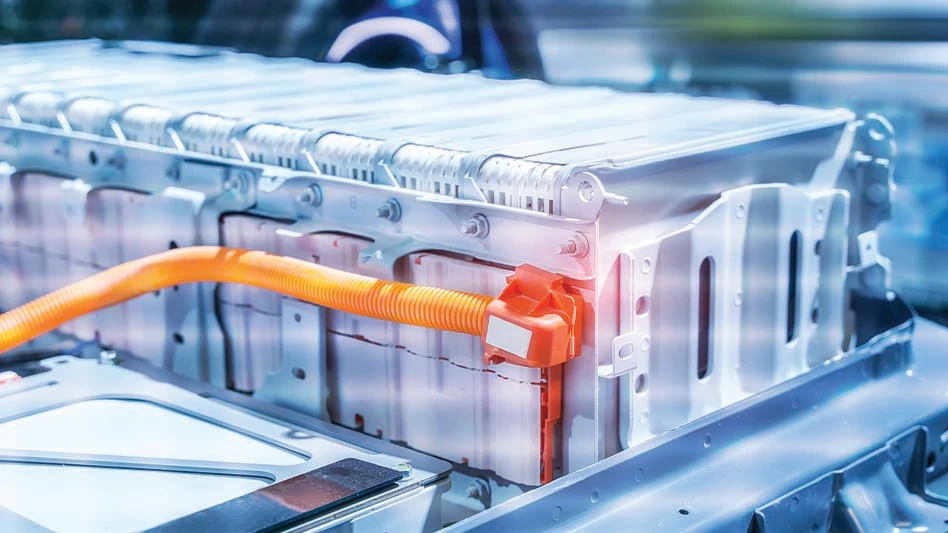Over the past several years, both the scrap metal and steel industries have consolidated rapidly, concentrating market control among a few relatively large players. As the "new kid on the block," the electronics recycling industry is also going down that path, in our view. Consider that Australia-based Sims Group, which recently became the world’s largest scrap metal recycler through its merger with U.S-based Metal Management, now also ranks as the world’s largest electronics recycler following numerous acquisitions in North America and Europe. Many other electronics recyclers have also pursued their own acquisitions over the past few years.
Despite this mergers & acquisitions activity, the electronics recycling industry nonetheless remains highly fragmented, with hundreds of small operations in business. And, with electronics recycling market growth climbing at roughly 25 percent per year, according to our research, the need for the industry consolidation is increasing. In sum, we expect to see more merger activity occurring as electronics recyclers seek to scale their geographic footprint, while broadening and increasing their service offerings.
Based on our discussions with a number of electronics recyclers, we can point to three primary motivations behind the "urge to merge" in the electronics recycling sector:
1. A desire to augment processing capabilities – It’s no secret that the traditional business of dismantling and recycling electronics has become highly competitive and less profitable over the past few years. As a result, many electronics recyclers are looking to move up the value chain by augmenting their processing capabilities with services that have greater long-term profit potential. For example, some companies are becoming more interested in offering services such as lifecycle IT management and/or secure data destruction. Other companies are interested in becoming refiners of precious metals or in becoming larger electronics scrap commodity traders. While some electronics recyclers may opt to leave the dismantling business altogether, our research suggests that many electronics recyclers find it advantageous to provide a full suite ("one-stop shop") of electronics recycling services for their customers.
2. Geographic expansion – Similar to the solid waste management industry decades ago, the electronics recycling industry today often is characterized by many small, companies serving a well-defined, local geographic area. As the electronics recycling industry has grown, however, it has become increasingly advantageous for electronics recyclers to serve a wider geographic area, which can provide significant efficiencies in terms of electronic scrap collection and also in distribution of processed materials. In addition, since the electronics recycling market is already highly competitive, the time and expense of establishing greenfield operations in new regions is often prohibitive. As a result, when considering the "buy vs. build" equation, electronics recyclers are much more likely to opt for M&A, in our view.
3. Increasing credibility with large customers – As we noted, the electronics recycling industry is fragmented, and many industry participants are relatively small compared with many of their potential customers. At the same time, large corporations, municipalities, and other entities want assurance that the electronics recycler they are considering doing business with is both financially and operationally stable. Basically, it’s the "No one ever got fired for hiring IBM" type of thinking that is common in business transactions, and is a real reason that smaller electronics recyclers are at a disadvantage when it comes to negotiating with their larger customers and suppliers. This reason alone creates a big incentive for smaller companies to consider consolidation, particularly in an industry as young and new as electronics recycling. (As a side note, we would point out that many scrap metal recyclers agreed to be acquired, partly because they lost the negotiating leverage they may have had with their much larger steel industry customers.)
Beyond these three motivations for consolidation, we would suggest one more: If Congress were to start addressing electronics recycling legislation on a national level, we believe that industry consolidation would almost certainly accelerate since larger and more geographically diverse companies would be better able to address the nationwide scope of such legislation. Still, even without the prospect of national electronics recycling legislation on the horizon, we conclude there are plenty of compelling incentives for electronics recycling industry consolidation to gain speed in the coming years. Eric Glover.
Sponsored Content
Labor that Works
With 25 years of experience, Leadpoint delivers cost-effective workforce solutions tailored to your needs. We handle the recruiting, hiring, training, and onboarding to deliver stable, productive, and safety-focused teams. Our commitment to safety and quality ensures peace of mind with a reliable workforce that helps you achieve your goals.
The author is an Equity Research Analyst with Canaccord Adams, an independent financial services firm committed to fostering the entrepreneurial economy.
Get curated news on YOUR industry.
Enter your email to receive our newsletters.

Explore the October 2008 Issue
Check out more from this issue and find your next story to read.
Latest from Recycling Today
- Nucor expects slimmer profits in early 2025
- CP Group announces new senior vice president
- APR publishes Design Guide in French
- AmSty recorded first sales of PolyRenew Styrene in 2024
- PRE says EU’s plastic recycling industry at a breaking point
- Call2Recycle Canada, Staples Professional expand partnership
- Circular Services breaks ground on north Texas MRF
- Tariff uncertainty results in choppy nonferrous scrap flows







